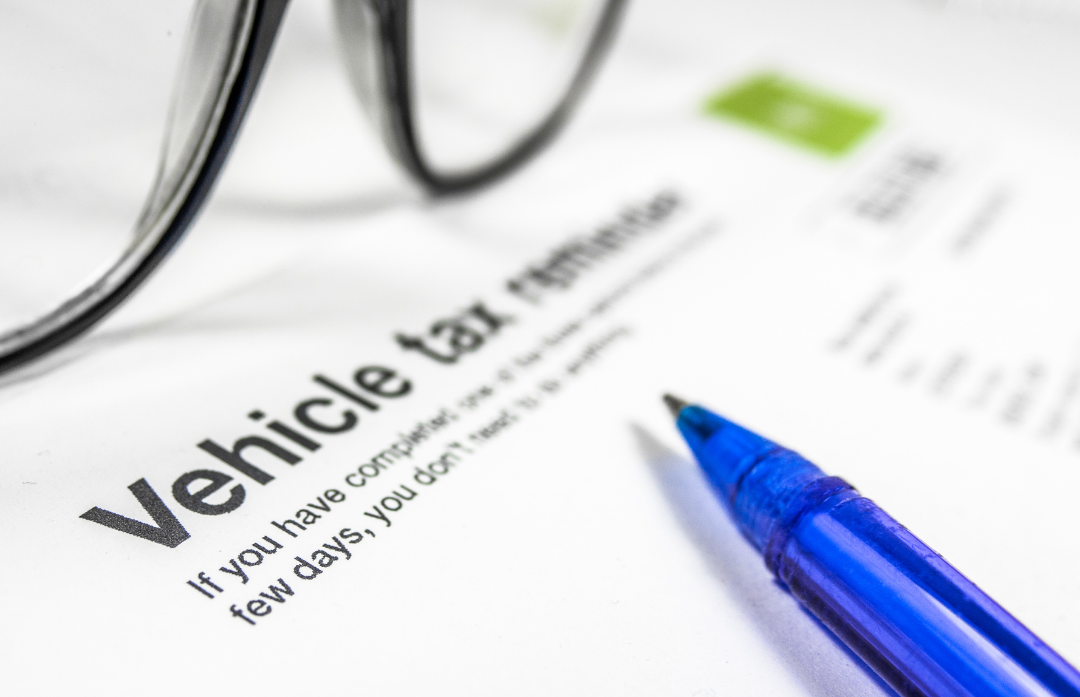Electric Car Road Tax
By Motor Match • 15/03/2024
Are you an electric vehicle (EV) owner or planning to get one soon? If so, it's essential to understand the upcoming changes to the Vehicle Excise Duty (VED) rules, also known as the road tax.
Is Road Tax for Electric Vehicles Changing?
Starting 1 April 2025, EV drivers will have to pay road tax for the first time in the United Kingdom, impacting numerous EV owners' annual motoring costs. This blog post will guide you through the tax costs you can expect right now and give you a glimpse into the future of road tax for electric car drivers up until 2025.
Previously all Electric Vehicles have benefitted from £0 road tax rates, this is arguably one of the deciding factors in many drivers choosing to go electric.

What Exactly is Electric Car Road Tax?
The road tax, colloquially known as VED or car tax, is an annual levy on motor vehicles used or parked on public roads in the UK. Its primary purpose is to generate revenue for the government, funds used towards maintaining and upgrading road infrastructure.
Now, you might wonder - what determines the rate of road tax? The road tax computation is influenced by emission levels - having higher emission levels means having to pay more. This categorization is because these cars contribute more towards environmental pollution.
However, from 2025, the scenario will change - zero-emission vehicles, including electric cars, will have to pay road tax VED for the first time.
Do EVs Require Road Tax?
The straightforward answer is - yes. Almost all vehicles, including EVs, must have road tax to be legally driven on UK roads.
Currently, EV owners don't have to pay anything to tax their vehicles, and the annual VED is provided free of charge. But come 2025, this exemption will no longer apply.
What is the Road Tax for EV Drivers?
At present, EV drivers don't have to shell out for road tax but are required to get their cars taxed – even if no money is involved.
To qualify for the free road tax, the electricity that charges your EV should come from an external source like a private or public charge point, an electric storage battery disconnected from any power source when the vehicle is in motion, or hydrogen fuel cells.
However, all other vehicles, including hybrids producing electricity independently, attract a mandatory vehicle tax.

What Other Annual Payments Do EV Owners Bear?
Alongside being aware of the road tax, EV owners should also familiarize themselves with other annual payments. They include:
- Electricity costs: Home charging your EV will increase your household's electricity consumption, the cost of which will depend on your vehicle's efficiency, local electricity rates, and the distance you cover.
- Car insurance: Like any other vehicle, EVs need insurance before hitting the road. The premium for electric car insurance can depend on your driving history, the vehicle model, and the company providing the insurance.
- Maintenance: Despite having fewer moving parts and, therefore, requiring less maintenance than regular combustion engine vehicles, EVs still incur routine maintenance expenses. These costs may vary based on the specific make and model of the car.
It's also important to remember that government policies and incentives for EV owners can evolve over time, so staying updated on the latest regulations and potential financial benefits is crucial.
Must Every Vehicle Owner Pay Road Tax in the UK?
Although some vehicles are exempt from paying road tax each year, all vehicle owners, including those with EVs, must tax their vehicles even if they don't have to pay. This requirement is a legal necessity for all EV owners, and failure to comply can prompt legal issues with law enforcement.
Whether you're a current electric vehicle owner or planning to become one, understanding the road tax system is essential for hassle-free driving on UK roads. Be sure to check the status of your road tax and align yourself with the new VED rules coming into effect in 2025.
You may also like…